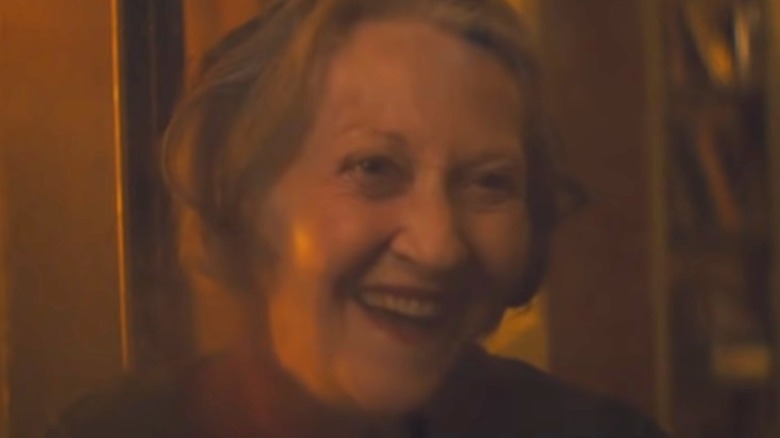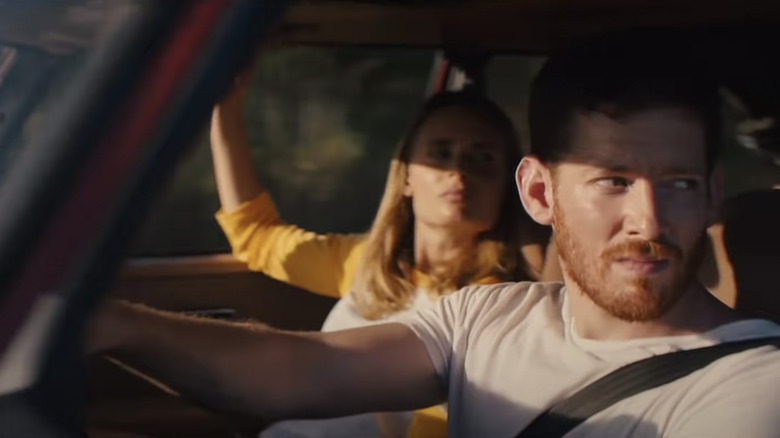The Vegan Horror Movie You Have To See To Believe
Veganism has been the source of plenty of punchlines in film and television, but did you ever think it would be plot thread in an independent horror film? Thanks to "Honeydew," audiences can see the diet in a whole new light.
The film, which had originally been due to premiere in 2020 at the Tribeca film festival and is now available for digital rental, has a familiar presence: A young couple are lost in the woods, without a working car or cell phones, and turn to a kindly stranger for help. However, they soon discover their host isn't quite as amicable as they had once thought. Rylie (Malin Barr) and Sam (Sawyer Spielberg, the son of famed Stephen Spielberg here in his film debut) are vegans but eat the meat and cupcakes offered by host Karen (Barbara Kingsley) out of manners and hunger. However, the duo begin the hallucinate and find themselves at the mercy of some terrifying forces, bringing viewers on a chilling and unsettling journey.
Honeydew is inspired by a real-life event
"Honeydew" is the passion project and first full-length feature film of writer/editor/director Deveraux Milburn.
In an interview with Script Magazine, Milburn shares how the plot developed, revealing that the film initially started with a much more traditional storyline. However, a real-life incident inspired him to use food as a source of horror. "A friend of mine sent me an article ... about a mass poisoning in a small French village in the 1950s called Pont-Saint-Esprit," Milburn tells Script. "There's a breakout of ergot infectants [in the town] and ergot is a fungus commonly found in rye. ... [T]he people of the town had no idea what was causing these symptoms and people were developing gangrene and having hallucinations and going insane and having to be committed to institutions."
Milburn's directorial style includes split screens, cross-cutting, and nonlinear dialogue sources, giving the viewer a taste of the terrifying disorientation Sam and Rylie feel. "Honeydew," in many ways, though, is a commentary on how our food influences our attitudes, perceptions, and behaviors. As Nick Schager at the Daily Beast says, "For the most part, though, the real sick joke of Milburn's film boils down to the idea that you are what you eat — or, at least, that what you devour often has the capacity to drive you out of your ever-loving mind."

